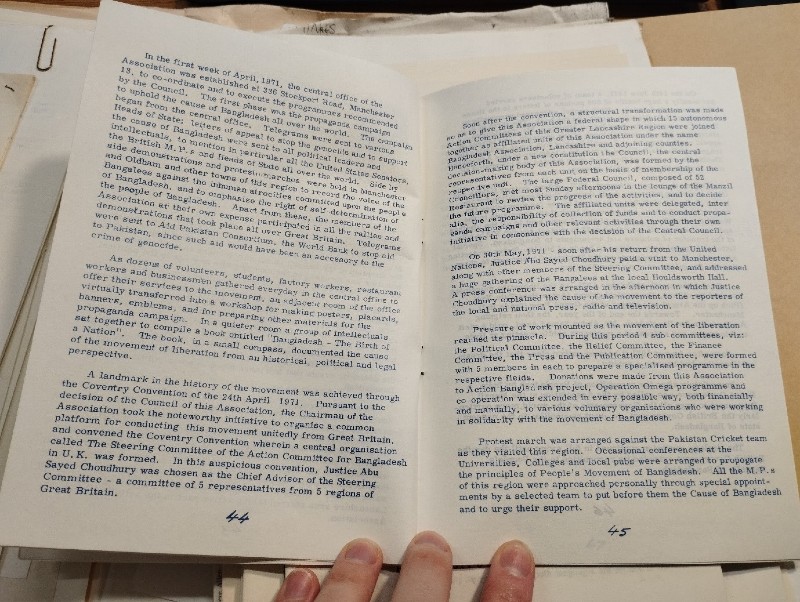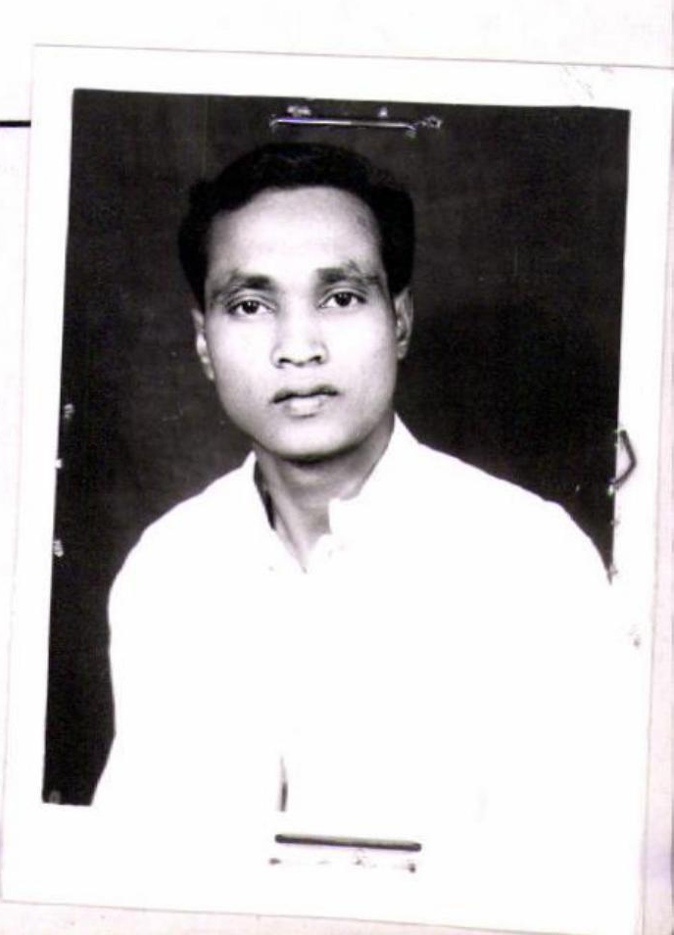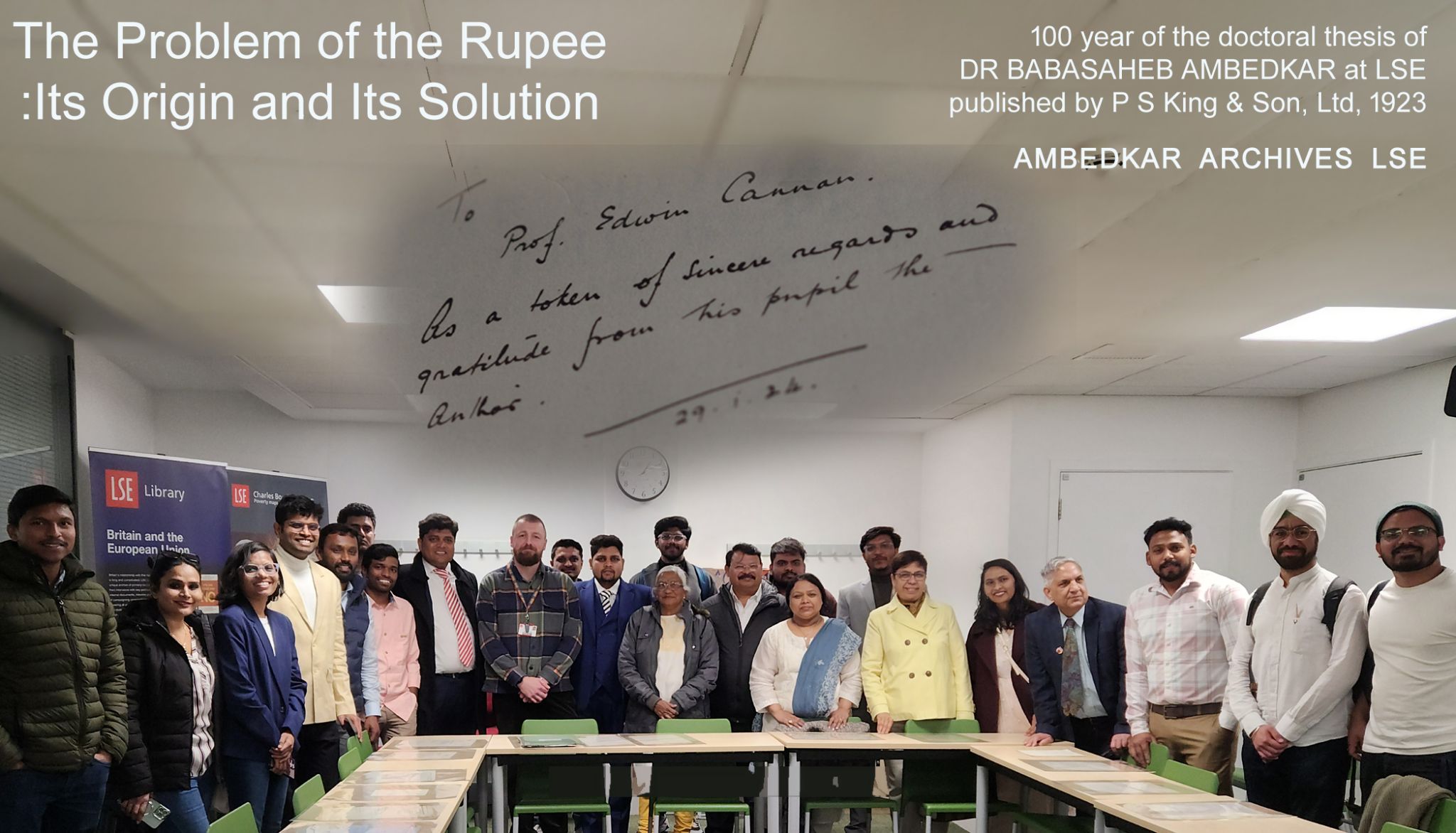By South Asia we mean any items in the Library’s archives and special collections that are about or created by people or organisations that have a relationship to the countries of Afghanistan, Bangladesh, Bhutan, India, Maldives, Myanmar, Nepal, Pakistan and Sri Lanka.
Find out more about the Traces of South Asia project and how to get involved.
Resource guides
Visitors and research case studies
We love having visitors come to our archives and we learn a lot from them. Here's a list of some the people that have engaged with our South Asia collections.

Michele Benazzo is a PhD candidate in International History at the Graduate Institute of Geneva, Switzerland. He came to explore our archives of Peter Shore MP. “The London East End is not only home to the biggest Bangladeshi community in Britain but also to Peter Shore’s political heritage. Indeed, the personal life of the second and the story of the first crisscrossed in the streets of Tower Hamlets. I approached the South Asia collections at LSE Library precisely by following the paper trail left by Bangladeshi activists on the archival shelves of the East End, where Peter Shore’s name peeped out continuously.”
Michele wrote a post about his research for the South Asia @ LSE blog.
 Bangladesh Association-Souvenir Brochure-1973-pp.44-47, LSE/SHORE/21/13-British Bangladesh Society
Bangladesh Association-Souvenir Brochure-1973-pp.44-47, LSE/SHORE/21/13-British Bangladesh Society
Sanjay Prasad, a Senior Executive for an India HQ Technology company based in New York, got in touch to see if we had any records relating to his father Dinanath Prasad, who studied at LSE in the 1950s. We found a fascinating file that included some 80 pages relating to his father’s time at LSE.
My father’s story of a young boy growing up in remote village in Bihar (amongst the most underdeveloped states in India) and working his way to LSE is a reminder of the boundless human spirit. Going from Bihar (a place which still did not have electricity or running water) to Holborn was a big change!
His going to LSE has changed the lives of an entire generation and the second generation. Seeing his student file has bought my family a deluge of happiness; we can’t wipe our tears enough. Our Mom wants to touch these pages.
Read more about Sanjay and his father: The mighty leap from Lakhnaura to London: the story of LSE alumnus Dinanath Prasad.

We were delighted to host so many visitors to the Library to commemorate Ambedkar’s birthday. Siddhartha Datta Ahiwale, one of the visitors leading a Jay Bhim London tour, shared this photograph and writes about his experience with the archives:

It was an electrifying moment; there I stood, clutching the copy signed by Dr. Babasaheb Ambedkar of 'Problem of the Rupee', in the heart of the Centennial year at LSE archives.
Time seemed to dissolve, and I felt an overwhelming presence, as if I were right there with Babasaheb, consumed by humility and gratitude. It felt like a rush of excitement and gratitude all at once! Words fail to capture the depth of emotion shared by every member of PRABUDDHA INTERNATIONAL as we celebrated Jayanti through the transformative Jay Bhim London tour.
Celebrating Dr. Babasaheb Ambedkar's birth festival at LSE felt personal, as our beloved father studied in this very institute and obtained a Doctorate in Economics with 'The Problem of the Rupee: Its Origin and Its Solution.
Have you used the South Asia collections at LSE Library? We’d love to hear from you and share your research here!
Online exhibitions
The project begins with a series of online exhibitions.
Dr Gillian Murphy introduces the Myra Sadd Brown Memorial Library that forms part of The Women’s Library collections.
View 'Women and South Asia'
Exhibitions
In 2017 LSE Library curated an exhibition in partnership with LSE South Asia Centre called Journeys to Independence: India, Pakistan and Bangladesh”. You can listen to a podcast related to the event and see more on our past exhibitions webpage.
Video talks
Listen to experts discuss caste, constitution and gender in the light of Ambedkar’s life and work at this event by LSE South Asia Centre, LSE Library, and the DecolonisingLSE Collective.
Watch Ambedkar: Caste, Constitution and Gender
Watch this talk from LSE Library, LSE Anthropology, and LSE International Inequalities Institute with the editors and authors of the recently published book, Ambedkar in London.
Watch The life of Dr B R Ambedkar in London
Watch an esteemed panel of historians and writers as they celebrate the republication of an early anti-imperial feminist classic.
Watch Awakening of Indian Women
Blog posts
Further information
When an institution becomes the custodians of an archive, the archivist is faced with the difficult task of describing these contents in a catalogue so that researchers can discover them. Since describing everything that appears in those documents is not practically possible, the archivist will select and emphasise materials that they consider are of significance, according to a particular frame of reference. By doing so a description always misses something. What is missing might be of importance to somebody else who has a different frame of reference.
For example, a description of an organisation’s minutes could not describe everything that is discussed in those meetings, and will often describe general subjects discussed, or even just the dates that are covered in those meetings. Yet perhaps there is an unexpected story in those minutes that relates to a researcher’s very specific interests? Therefore when somebody is looking for archives relevant to their topic, the researcher finds themselves needing to pay attention to not just what a description says, but also to what it doesn’t say. This new and ongoing project is an attempt to help with this process.
Our archives and special collections focus on modern British political and economic history and the development of social sciences in Britain. Despite the British focus of these collections, there are many items, distributed across many collections, that are relevant to the history of South Asia. Since the Library’s founding, there has been a strong connection with South Asia. William Beveridge, the School’s Director 1919 to 1937, was born in Rangpur (now Bangladesh). Founders of the LSE, Beatrice and Sidney Webb, both travelled extensively across what was then British India. The Library houses official publications from Governments across South Asia, and thousands of students and staff from South Asia have studied our collections and gone on to shape the world. We have chosen South Asia as a starting point.
Whilst we have begun this project with some online exhibitions curated by colleagues in the Library, we are particularly interested to hear from the LSE community (both students and staff) who are interested in looking at our archives in these areas from a critical perspective and collaborating with us to grow this page as a resource. If you’re interested or would like to find out more, or if you are working on a project that you think could fit this scope, we would love to hear from you.
Acknowledgements
Lead photograph at the top of this webpage is from the archives of Neville Sandelson MP, on a visit to Pakistan and Afghanistan with Lord Cranborne, SANDELSON/12/21.
Many people have supported us at the beginning of this project for which we are thankful. We would particularly like to thank Dr. Nilanjan Sarkar for his tireless expertise, kindness and support on this and related projects.